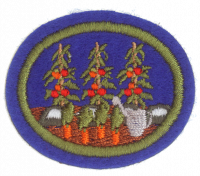AY Honors/Rural Development/Requirements
Prologue: This honor is available only to clubs inside the North American Division. For those outside the North American Division, use the Community Development honor instead.
1. Explain to your instructor why some countries in our world are called “developing” countries and why others are called “developed” countries.
2. Name ten developing countries and list two things that ADRA is doing in these countries that would fall under the description of “relief” and two things that would fall under the description of “development”.
3. Read what Ellen White has written about why we have the poor with us in Desire of Ages, Chapter 70, entitled “The Least of These My Brethren”. Summarize what you have learned from this chapter in 50 words or less.
4. View an ADRA video report (www.adra.org) on development activities in other countries than your own, and participate in a discussion about what you see following the video.
5. Participate in one of the following field trips or group projects:
- a. Go on a mission trip to a disadvantaged rural area in another country or within your own nation.
- b. Raise funds and contribute to the contents of an ADRA-kids-box of your choice (http://kids.adra.org).
- c. A 24-hour group fast and educational “lock-in” session with your youth group focused on understanding the needs of the poor in developing nations, and designed to raise funds for rural development.
6. Listen to or watch a presentation about a person who grew up in a rural, underdeveloped area. Discuss with a Pathfinder staff, club, unit or class how the following differed from your life:
- a. What they wore or ate
- b. How they kept warm or cool
- c. What home, church or school was like


